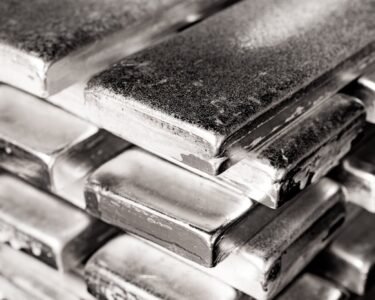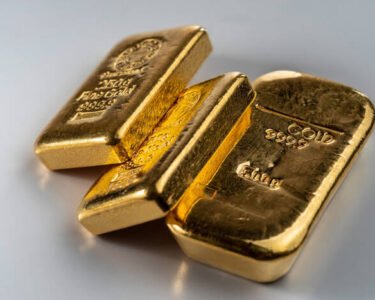Export Development Canada is providing a bridge loan of $110-million, while the Canada Infrastructure Bank is lending $55-million.Justin Tang/The Globe and Mail
Torngat Metals Ltd. is raising $165-million from the federal government as it attempts to put a rare earths mine and refinery into production in Quebec at a time when China’s dominance of the sector is causing high anxiety for the West.
Montreal-based Torngat said in a news release Tuesday that Export Development Canada has agreed to provide it with a bridge loan of $110-million, while Canada Infrastructure Bank will lend $55-million. The company plans to put the funds toward engineering work, environmental studies and early construction efforts to move along its Strange Lake project in the remote Nunavik region of northern Quebec.
Canada currently has no rare earths mines and limited processing capabilities. China mines about 69 per cent of global rare earths and has a 95-per-cent share in processing. At this week’s G7 summit in Alberta, leaders vowed to collaborate on securing better access to critical minerals within the G7 to counter the threat posed from overreliance on China.
As retaliation for U.S. President Donald Trump imposing supersized tariffs on it earlier this year, the Asian superpower temporarily blocked exports of several rare earths to the United States, which disrupted manufacturing supply chains.
Torngat plans to have a rare earths mine and concentration plant in Nunavik in operation in 2028. The last publicly available capital estimate for the project, which also includes a 180-kilometre road to transport ore to a port in Voisey’s Bay, Labrador, and a separation and processing plant in Sept-Îles, Que., was $1.6-billion.

Torngat Metals Strange Lake Project
Access road/
port facilities
Lac Brisson
(Proposed mine/
concentration plant)
Sept-Îles (Proposed rare
earth separation plant)
the globe and mail, Source: openstreetmap; torngat metals

Torngat Metals Strange Lake Project
Access road/
port facilities
Lac Brisson
(Proposed mine/
concentration plant)
Sept-Îlse (Proposed rare
earth separation plant)
the globe and mail, Source: openstreetmap; torngat metals

Torngat Metals Strange Lake Project
Access road/
port facilities
Lac Brisson
(Proposed mine/
concentration plant)
Sept-Îles (Proposed rare
earth separation plant)
the globe and mail, Source: openstreetmap; torngat metals
“We have a deposit that’s incredibly rich in heavy rare earths, which you don’t find outside China, and we’re only three, four years away from being in operation,” said Torngat CEO Yves Leduc.
Mr. Leduc declined to give specifics around the company’s latest financial modelling but said that “the economics are solid.”
“EDC wouldn’t have provided us a loan, neither would CIB, if we hadn’t been extremely compelling,” he said.
The funding is a first for EDC, which historically has invested in companies only after engineering plans are finalized and project financing is largely lined up.
Sven List, senior vice-president of Canadian corporate business at EDC, said the Crown corporation felt confident enough to make the investment in Torngat because it is so well capitalized.
Torngat is privately held and majority owned by U.S. private equity firm Cerberus Capital Management. Torngat acquired Strange Lake from Quest Rare Minerals Ltd., which filed for creditor protection in 2017 during a deep slump in the rare earths market.
Canada and the U.S. remain engulfed in a trade war in the aluminum, steel and automotive sectors, which is fuelling a push to wean Canadian industry off of American dependence. Prime Minister Mark Carney has vowed to expedite new national infrastructure projects such as mines and pipelines, a strategy that EDC is fully on board with in its funding of Torngat.
“This is really in line with Canada really going through a nation-building moment,” Mr. List said.
The investment from Canada Infrastructure Bank is its first in the critical-minerals sector. Funds from the CIB loan will be put toward early works at the project, including expanding the airstrip, as well as work on roads, power and wastewater infrastructure, said John Casola, chief investment officer with CIB.
While the early-stage nature of the company means there’s a chance that Torngat might not be able to pay back its investment, Mr. Casola said the strategic importance of the project gave CIB some leeway to take that risk.
“We were created as part of our mandate at the CIB to take this kind of risk for projects of national importance,” Mr. Casola said. “Things that we think have a great shared benefit for Canadians.”
Both CIB’s and EDC’s loans are securitized against assets the company holds, including rights to the Strange Lake deposit and the land, Mr. Casola said.
Dysprosium is one of the two heavy rare earths Torngat plans to produce.Romain Rabier/Reuters
While Torngat’s CEO is grateful that CIB and EDC have stepped up with financing, he said it has been difficult to get other Canadian investors on board. He’s hopeful that given the urgency to develop North American supply chains of rare earths, more domestic investors, including Indigenous communities, will step up.
“Institutional investors have shied away from investing directly in mining opportunities because it’s a risky business,” Mr. Leduc said.
“You need to build up the expertise to be able to get there.”
Torngat plans to produce the heavy rare earths dysprosium and terbium, which are used in specialized magnets in the automotive and defence sectors.



